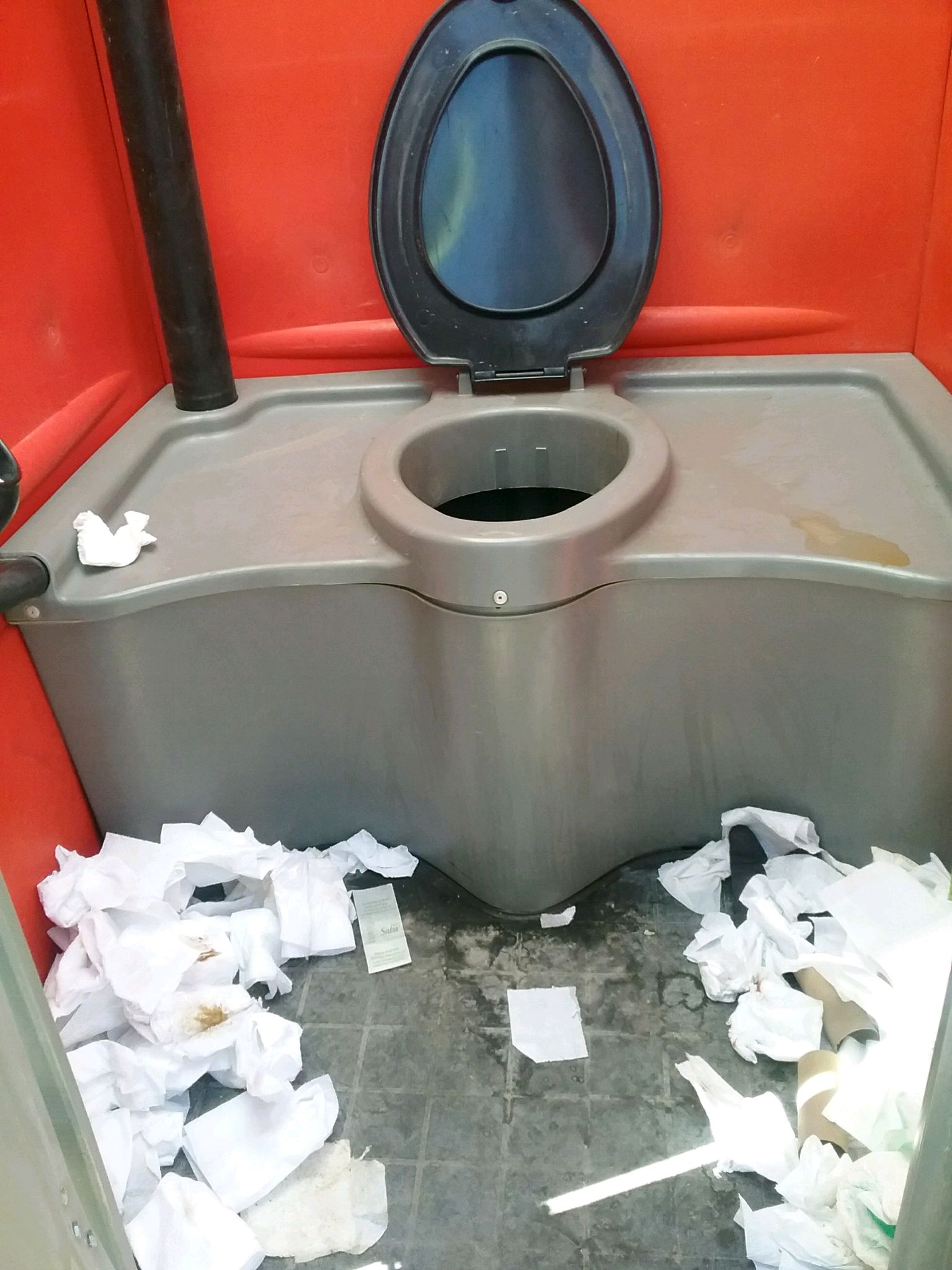ANIMAS, N.M. — There is a health crisis on the U.S.-Mexico border that was deliberately covered up during a visit by members of Congress, according to the head of a sanitation company supplying outposts there.
Tricia Elbrock, the owner of Elbrock Water Systems in Animas, N.M., supplies portable bathrooms at facilities near the border. She told the Washington Examiner that after she dropped off two portable toilets near the border at the request of the Border Patrol, her cleaning staff was “overwhelmed” after hundreds of migrants used them.
“There’s a crisis here — the influx of people. These little counties and towns cannot handle that mass,” Elbrock said during a recent meeting at her business in Animas. She also fears the number of migrants using the bathrooms is a hazard. “There’s a health issue with the porta-potties.”
Last month, an outbreak of Legionnaires’ disease at the U.S. Customs and Border Protection’s base in Antelope Wells, N.M., forced officials to close an indoor bathroom that migrants had been using. Officials allowed migrants access to that bathroom in the hopes of avoiding a bigger mess around their headquarters that would have been unavoidable had no bathroom been available.
Elbrock dropped off two portable toilets, but said two wasn’t nearly enough. She said one is appropriate for 10 to 15 people and that the Border Patrol should have asked for 15 based on how they were used. “That facility can’t handle that many people. They’re gonna be overwhelmed,” Elbrock said.
Four days after dropping off those portable toilets, the base asked her company for an emergency cleaning because lawmakers from Washington were coming to look at Antelope Wells and Lordsburg, N.M., the following day. The Congressional Hispanic Caucus wanted to see the conditions of facilities where a young Guatemalan girl who died of sepsis on Dec. 7 had visited.
“When they went in there to clean — they were overrun,” said Elbrock. “They just threw [toilet paper] on the floor there and piled it up. We had to go and clean it. That was a concern of ours handling the waste on that toilet paper. So we talked to the Border Patrol. … ‘It’s totally trash, we’re going to pull out. We’re a small, family-owned business down here and maybe they need to get someone bigger than we are.'”
Elbrock worried about putting her team’s health at risk so she paid for employees to get Hepatitis shots and gave them masks, gloves, breathing devices, and suits to wear. The next week — days before Christmas — the town of Lordsburg asked her company to drop off four portable toilets.

“They have anywhere from 300 to 400 illegals [sic] that they brought in from Antelope Wells and they need porta potties. And I said, ‘Four’s not gonna do it.’ It’s like, what a nasty situation we’re gonna have here,” she said.
“Lujan came and toured it and said what deplorable conditions they are, and this and that. But he didn’t go on to say that this facility can only man or handle 100 but they got 400 in there. So there is no facility big enough to handle them,” she said, referring to Rep. Ben Ray Lujan, D-N.M.
Elbrock and county officials said fewer charter buses are dropping off people at the border crossing. Since late September, 100 to 300 people had been illegally entering the U.S. at Antelope Wells multiple times a week, according to County Manager Tisha Green.
Border Patrol deployed a medical personnel unit to those two bases to alleviate pressure on the county’s handful of medical personnel responsible for emergency across 5,000 square miles. But she refused to haul off the Legionnaires’-ridden water from Antelope Wells and told Border Patrol to bring in bigger forces.
“Until people live there, they don’t understand why we need the wall. And most of all how there’s no wall down here. We have barbed wire fence and there’s nothing,” she said.
Customs and Border Protection (CBP) did not respond to several requests for comment on this story.
EDITOR’s NOTE: Following a post-publication complaint by CBP, this story has been updated to reflect the fact that the Washington Examiner contacted CBP for comment during its reporting and the CBP failed to respond. The Washington Examiner stands by its story.
